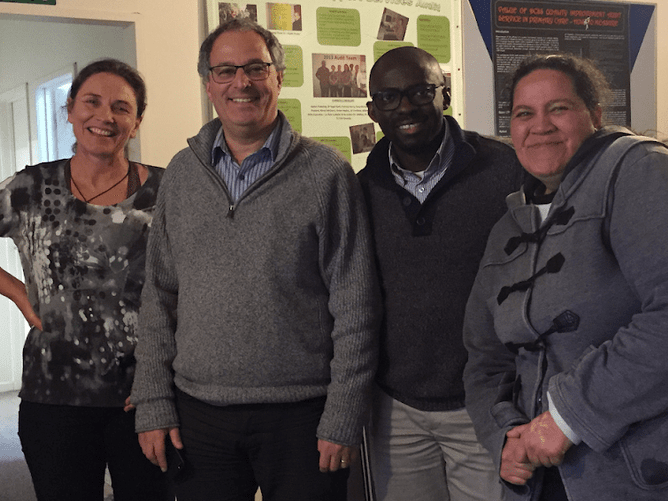The fully anonymised diabetes related DCSS dataset, as collected by our wonderful auditors from participating Primary care practices over a more than 20 year period, is now on the move.
In the early years, the DCSS was classified as research under ethics conditions. In the later years it was recognised as a quality improvement service and funded by DHB's (or predecessors) with oversight by an executive group made up of specialist advisors.
The stated purposes of the audit were to improve the care provided to patients with or at risk of diabetes, and to be used in planning and research in non-identifiable aggregated form. Many Primary care teams used their reports to identify areas where change needed to be made, or took up the suggestions from the auditors and the specialist who gave individualised feedback. DCSS data was also utilised in many situations at local and regional levels to present a better picture of what was happening in the community, and reports and analysis were presented at conference over the years to highlight useful observations, changes, or areas in urgent need of attention.
As is vital in any quality improvement service, particularly one with access to very sensitive material, the data was carefully managed to ensure a high level of accuracy, as well as confidentiality and security from the collection point, through to transport, entry into the database, and ultimately analysis and reporting. When the service finally closed in 2018, there was left a range of issues including what to do with the paper copy files, electronic files, hardware, storage media, and the actual treasure trove of information describing the clinical journey (anonymised) of real people across Auckland over a prolonged period of time.
A presentation was made at the NZSSD conference on this topic, raising the awareness that this is an issue with many collections big and small over the years...how to close, tidy, and secure for the future. One of the concerns, apart from 'data safety' is the potential for 'waste'. In the case of the DCSS, millions of dollars, many thousands of hours of effort from many people, and the actual fascinating reality of what the dataset potentially could tell us...meant that leaving it mouldering in a secure drive until the day no-one had the software to open the folder any longer (or remember what it was) wasn't an option! Much work was done on such things as policy and procedure around the closure, ownership/ethical/security considerations, what to be destroyed and what to store, protection into the future, ongoing oversight etc.
Then enter Professor Simmons and his team. We are delighted that we have come a full circle with the originator of the DCSS Audit now being in a position to take up the challenge of ensuring the best use of the data, and of course, all is fully in line with all appropriate ethics and privacy requirements of the current time. We look forward to reporting back over the time to come on the findings.


